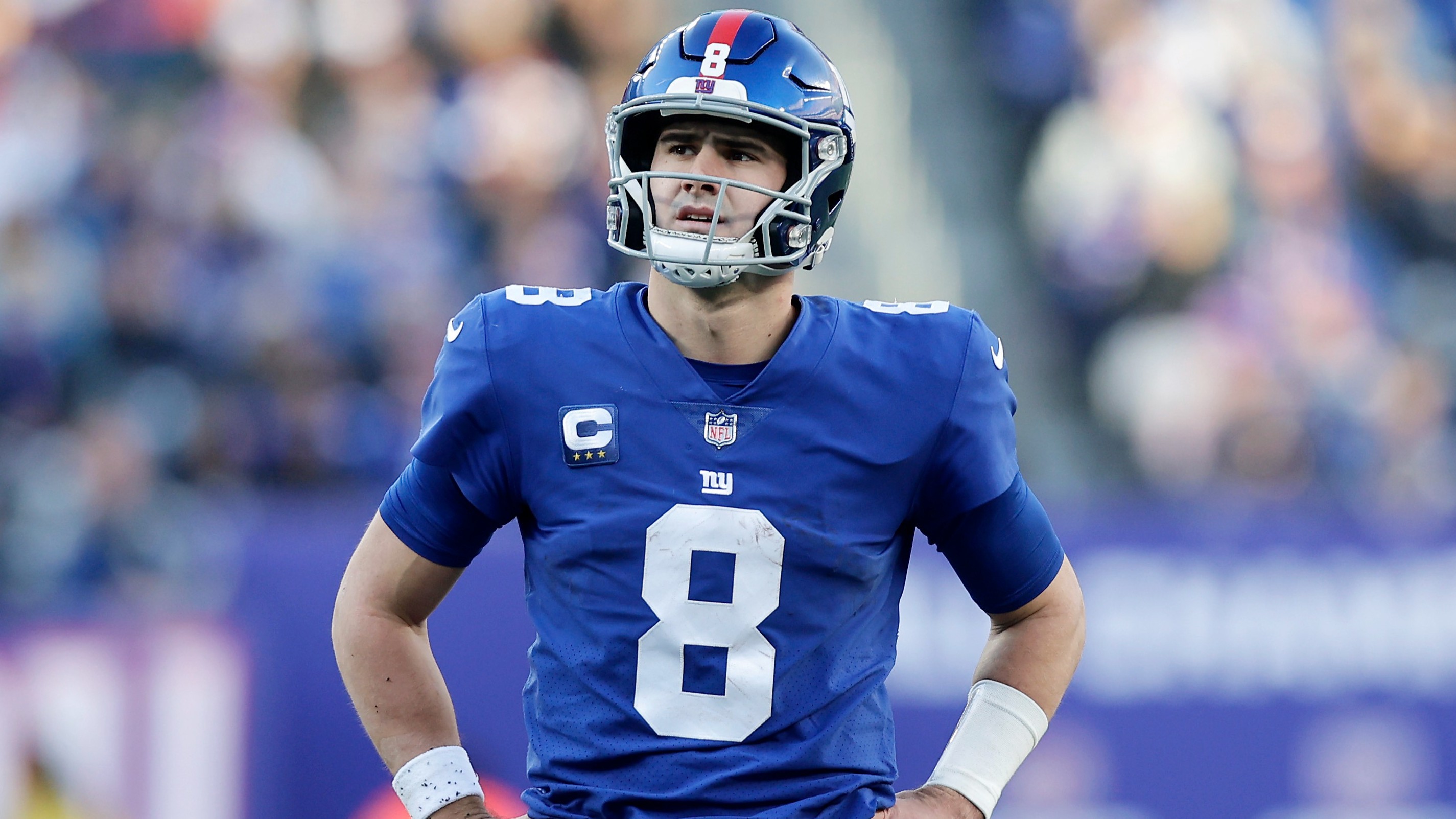
Jim McIsaac/Getty Image
New York Giants quarterback Daniel Jones reportedly asked for an astronomical $47 million per year before ultimately settling for a $40 million per year extension.
This revelation sheds light on the complexity of the Giants’ efforts to retain both Jones and star running back Saquon Barkley.
The negotiations with Jones were particularly challenging for the Giants, given the uncertainty surrounding the quarterback’s value. Jones had been plagued by injuries and inconsistency during his first three years in the league, leading the Giants to decline his fifth-year option in 2022.
However, Jones managed to navigate his contract year successfully, guiding the Giants to the playoffs and positioning himself for a significant payday. Remarkably, Jones became the first quarterback to sign an extension with a team that had previously declined his fifth-year option.
While the final figures of his contract far exceeded expectations, it is now known that Jones initially sought a staggering $47 million per year, according to Dan Duggan of The Athletic.
The number is even higher than the reported $45 million per year that was circulating in February when Jones changed agents.
Had the Giants agreed to Jones’ initial asking price, he would have become the third-highest-paid quarterback in terms of average salary in the NFL, surpassing the likes of Kyler Murray and Deshaun Watson.
It is worth noting that subsequent contract extensions for Lamar Jackson and Jalen Hurts have since raised the market to $52 million per year. However, at the time of the negotiations, only Aaron Rodgers had surpassed the $50 million mark, with a uniquely structured deal that ultimately resulted in a trade.
Ultimately, the Giants and Jones were able to find common ground, agreeing on a four-year, $160 million extension.
This deal aligns with the contracts signed by quarterbacks Dak Prescott and Matthew Stafford with their respective teams in the previous two offseasons.